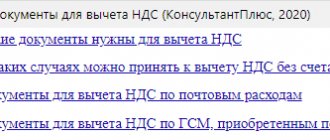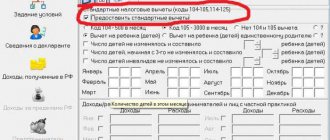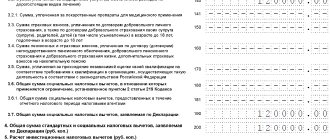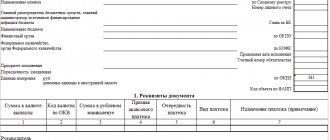What amounts of excise taxes are deductible?
“Excise deductions” are amounts by which excise taxes accrued on sold (or transferred) excisable goods (PT) can be reduced.
Tax deductions include excise tax amounts described in Art. 200, 201 of the Tax Code of the Russian Federation, providing for different algorithms:
- on excise taxes paid upon purchase of PT;
- on excise taxes paid in connection with transactions on certain types of products (denatured ethyl alcohol, straight-run gasoline);
- when PT is returned or lost;
- for producers of alcoholic products.
Read about the types of PT in the material “What are excisable goods - list 2015?”
The following excise taxes are accepted for deduction:
- based on amounts actually paid to PT sellers;
- with a full set of supporting documents.
If excisable goods are used as raw materials for the production of other products (“excisable raw materials”), confirmation of the following facts is required for deduction:
- payment for “excise raw materials”;
- write-off of the cost of “excise raw materials” to the costs of production of sold PT.
To obtain an “excise tax deduction,” a businessman must take into account many nuances, for example:
| Deduction | Article of the Tax Code of the Russian Federation | A comment |
| In case of irretrievable loss of PT | Art. 200 | Only excise tax relating to a portion of irretrievably lost goods within the limits of technological loss norms and natural loss norms (they are established for the relevant groups of goods) can be deducted. |
| For PT used as raw materials for the production of other PT, if the goods are paid for by third parties | clause 1 art. 201 | Deductions are possible provided that the payment documents indicate the name of the company for which the payment was made |
| According to purchased raw materials | clause 2 art. 200, clause 3 art. 199, Art. 198 | Excise taxes paid upon the acquisition of PT are subject to deductions if the excise rates of “excisable raw materials” and the excise rates of PT produced from these raw materials are determined for the same unit of measurement of the tax base. If the specified units of measurement of the tax base do not match, tax deductions are not applied, and the excise tax is included in the cost of the purchased PT |
We will talk about individual nuances of “excise tax deductions” in the following sections.
Purchase of excisable goods
When purchasing excisable goods from the manufacturer of these goods, the organization has the right to:
- taken into account in the cost of purchased goods (clause 2 of Article 199 of the Tax Code of the Russian Federation);
- accept for deduction, that is, reduce the amount of accrued tax for the reporting period by the amount of excise tax presented by the seller (clause 3 of Article 199 of the Tax Code of the Russian Federation).
The amount of input excise tax can be deducted if the following conditions are simultaneously met:
- the goods were purchased on the territory of the Russian Federation (subclause 1, clause 1, article 182 of the Tax Code of the Russian Federation);
- goods are used as raw materials for the production of other excisable goods (clause 3 of article 199, article 200 of the Tax Code of the Russian Federation);
- excise tax rates on raw materials and excisable goods produced from them are determined based on the same unit of measurement of the tax base (clause 3 of Article 199 of the Tax Code of the Russian Federation).
For excisable goods that are used for the production of other excisable goods, the following excise tax amounts are subject to deduction:
- paid to sellers;
- transferred to the budget when importing excisable goods into the territory of Russia.
When calculating excise duty on alcohol-containing or alcoholic products (except for wines, fruit wines, sparkling wines (champagnes), beer and beer-based drinks, wine drinks made without the addition of rectified alcohol), tax deductions of the advance payment are made within the amount of the advance payment actually paid to the budget, calculated based on the volume of raw materials used and the excise tax rate on alcohol and alcohol-containing products.
This procedure is provided for in paragraphs 2 and 16 of Article 200 of the Tax Code of the Russian Federation.
For example, an organization produces motor gasoline of the AI-92 brand. It uses AI-80 motor gasoline as a raw material for the production of products. The excise tax rate for both types of gasoline is determined per 1 ton (Article 193 of the Tax Code of the Russian Federation). Consequently, the amount of excise tax paid when purchasing AI-80 gasoline can be taken as a deduction.
In accounting, the excise tax that will be deducted, reflect the subaccount “Excise taxes” on account 19 “Value added tax”:
Debit 19 subaccount “Excise taxes” Credit 60
– reflects the amount of excise tax presented by the manufacturer of excisable goods.
Take for deduction only the amounts of tax actually paid (clause 1 of Article 201 of the Tax Code of the Russian Federation). A payment order or other payment document can serve as a supporting document. The amount of excise tax in settlement documents must be highlighted as a separate line. Similar clarifications are contained in the letter of the Federal Tax Service of Russia dated June 15, 2012 No. ED-2-3/393, the ruling of the Constitutional Court of the Russian Federation dated June 7, 2011 No. 805-O-O and the resolution of the Federal Antimonopoly Service of the Central District dated April 26, 2010 No. A09 -9856/2009.
In accounting, reflect the payment of the excise tax amount by posting:
Debit 60 Credit 51
– paid to the supplier for the goods, including excise tax.
Situation: can an organization, when purchasing excisable goods under a barter agreement, accept the amount of excise tax as a deduction?
In practice, tax inspectorates deny the buyer a tax deduction if the purchase of excisable goods occurs under a barter agreement. This is due to the fact that the absence of a payment document does not allow confirming and monitoring the payment of excise tax to the budget by the seller of excisable goods.
Therefore, in order to avoid disputes with the tax inspectorate, when using non-monetary forms of payment for excisable goods, transfer the excise tax amount in a separate payment order.
The legality of this approach is confirmed by the letter of the Federal Tax Service of Russia dated June 15, 2012 No. ED-2-3/393, as well as the resolutions of the Presidium of the Supreme Arbitration Court of the Russian Federation dated January 23, 2007 No. 11251/06, dated September 11, 2007 No. 4594/07.
Situation: can an organization claim a tax deduction if payments for excisable goods used as raw materials are made using bills of exchange?
The answer to this question depends on whether the organization uses its own bill of exchange or a bill of exchange of another organization when making payments.
As a general rule, the amount of excise tax is accepted for deduction only if it is actually paid (clause 1 of Article 201 of the Tax Code of the Russian Federation). A bill of exchange cannot be considered as a settlement document confirming the fact of payment by the manufacturing organization of excisable goods used as raw materials at a price that includes excise tax. Because the bill is a means of formalizing a deferred payment for purchased goods, and not their direct payment (Article 815 of the Civil Code of the Russian Federation).
Consequently, the actual payment for excisable goods when using your own bill of exchange in calculations will be the moment of repayment of your bill of exchange in cash to its bearer.
If a bill of exchange purchased as a financial investment is transferred to pay for excisable goods, the moment of payment will be considered the actual transfer of funds to the seller of the bill. If the bill of exchange is not paid in full, the amount of excise duty is deducted only to the extent of the funds actually transferred for it.
If, in payments for excisable goods, a third party’s bill of exchange is used, received in exchange for the organization’s own bill of exchange, the taxpayer does not have the right to deduct the amount of excise duty, since there is no actual payment of the bill of exchange in cash.
The legality of this approach is confirmed by letter of the Federal Tax Service of Russia dated June 15, 2012 No. ED-2-3/393.
Requirements for receiving deductions when returning excisable goods
If the PT is returned to the seller (upon termination of the contract and in other cases), in order to receive a deduction, the following conditions must be met:
- make all adjustments related to the return of goods in the seller’s accounting;
- excise duty on returned PT must be paid in full by the seller upon its sale;
- During the year, the seller submitted a declaration and supporting documents to the tax authority (it is required to confirm the fact of the return of the PT and the fact that 100% of the amount paid for the PT was returned to the buyer).
The described scheme does not apply if excisable alcohol-containing and (or) alcoholic products have been returned.
Study the accounting and tax details related to the sale of alcohol and alcohol-containing products using materials prepared by our specialists:
- “They want to impose excise taxes on alcohol for the production of cosmetics, household chemicals and medical products”;
- “Catering services with the sale of alcohol are subject to UTII”.
Tax officials in their letter dated December 6, 2016 No. SD-4-3/ [email protected] clarified the following:
- the seller cannot claim an “excise tax deduction” if an alcoholic product manufactured after 06/01/2016 is returned;
- the seller is obliged to pay excise tax on the re-sale of returned products (the excise tax on which was paid), while he does not have the right to deduct the excise tax paid on the initial sale of the product.
Deadlines for submitting declarations
Let's consider the deadlines for submitting excise tax returns.
As a general rule, excise tax declarations are submitted before the 25th day of the month following the reporting period (clause 5 of Article 204 of the Tax Code of the Russian Federation).
Certain categories of taxpayers can report two months later than the standard deadline, that is, for March 2022, you can submit a return until June 25, 2022 (with the standard deadline being April 25, 2022). Such taxpayers, in particular, include (clause 3.1 of Article 204 of the Tax Code of the Russian Federation):
- companies operating on the basis of a certificate giving the right to operate with straight-run gasoline and denatured alcohol;
- companies with a certificate of registration of a person carrying out transactions with benzene, parxylene or orthoxylene;
- companies with a certificate of registration of an organization carrying out transactions with ethyl alcohol;
- companies included in the Register of Civil Aviation Operators of the Russian Federation with the appropriate operator certificate;
- companies with a certificate of registration of a person performing operations for processing middle distillates;
- companies with a certificate of registration of a person performing ethane processing operations;
- companies with a certificate of registration of a person performing LPG processing operations.
There are also persons who submit a declaration no later than the 25th day of the sixth month immediately following the tax period (clauses 29, 30, 31, clause 1, article 182, article 204 of the Tax Code of the Russian Federation).
The declaration on excise taxes on petroleum raw materials is submitted within different deadlines. It is submitted no later than the 15th day of the month following the month in which the transaction recognized as an object of taxation in accordance with paragraphs. 34 clause 1 art. 182 of the Tax Code of the Russian Federation (clause 5 of Article 204 of the Tax Code of the Russian Federation).
Fill out and submit reports to the Federal Tax Service on time and without errors with Extern. 14 days of service are free for you!
Try for free
Increased deduction for straight-run gasoline in the Russian Federation in 2016
Processors of straight-run gasoline (RPG) have the opportunity to apply “excise deductions” in an increased amount by applying special coefficients to the excise tax amount. However, only certain categories of businessmen can receive such “increased” deductions:
- having a certificate for processing PRB;
- performing the actions listed in subparagraph. 21, 23, 24 clause 1 art. 182 of the Tax Code of the Russian Federation and (or) manufactured from PRB: petrochemical products produced in a special way (at temperatures above 700 degrees Celsius or as a result of dehydrogenation of gasoline fractions);
- benzene, paraxylene, orthoxylene;
Increased deductions are applied not only by PRB processors - the procedure for applying increasing coefficients in 2016–2017 is shown in the figure.
How increasing factors contribute to accelerating the write-off of property value - learn from the material “The essence and features of using the accelerated depreciation method”.
Tax deductions for excise duties
Amounts
A tax deduction is provided for the total amount of excise taxes paid when performing the following actions:
- The enterprise purchases or imports into the customs zone of the country, and then releases excisable products into free circulation for use as raw materials for the production of excisable products.
- The organization acquires, produces or imports customer-supplied raw materials into the customs zone or transfers excisable goods obtained from such raw materials.
- The company uses ethyl alcohol obtained from food raw materials to produce wine products intended for the production of alcoholic beverages.
- The buyer returned or refused excisable products.
- The upcoming deliveries of excisable products were pre-paid by the recipient.
- An enterprise that has permission to handle ethyl alcohol receives the alcohol and uses it to produce alcohol-free products.
- The enterprise sells alcohol to an organization that has a permit to produce alcohol-free products for the production of such products.
- An enterprise licensed to produce straight-run gasoline sells this gasoline to a person who has the right to process such gasoline.
- Performs operations with straight-run gasoline by transferring excisable goods of its own production for processing on a toll basis and by transferring products obtained from these raw materials to the owner of these raw materials.
- Receives and uses straight-run gasoline in the manufacture of petrochemical products and (or) transfers such gasoline as a toll raw material for the manufacture of petrochemicals.
General conditions for acceptance
An enterprise has the right to receive excise tax deductions subject to certain conditions:
- To make a deduction, you must provide one of the following documents proving the import of excisable products or payment of excise tax: payment document, invoice, customs declarations or any other documents.
- The deduction is based only on the amount actually paid by the seller, or presented by the taxpayer and paid by the owner of the customer-supplied raw materials.
- A deduction is possible only for the amount that the seller of the goods pays or the tax payer presents to the owner of the customer-supplied raw materials, and he pays it to the budget.
- The deduction is levied on the total cost of excisable products used in the form of an initial product, which is included in the costs of manufacturing other excisable products that are accepted for deduction when calculating the profit tax of a particular enterprise.
Important:
- In the case of paying tax on excisable raw materials to receive other excisable goods, the name of the organization for which this payment is made must be entered in the documents, otherwise it will be impossible to obtain a deduction.
- If excisable products are used as customer-supplied raw materials, for which tax has already been paid on the territory of the Russian Federation, in order to receive a deduction, payment documents must be provided confirming payment of the tax by the supplier of the raw materials.
- To receive a deduction for ethyl alcohol used for the manufacture of non-alcohol-containing products, you must provide: a license for the right to manufacture ethyl alcohol (non-alcohol-containing products);
- an agreement with an alcohol manufacturer (or with a taxpayer who has a permit to produce non-alcohol-containing goods);
- acts of acceptance and transfer of alcohol;
- register numbers of invoices of alcohol producers;
- invoice documents for the release of alcohol.
What is needed for reimbursement
At the end of the tax period, it may happen that the total amount of deductions will be greater than the total amount of calculated tax. The difference in this case must be reimbursed (offset or returned) in the manner established by Federal Law No. 366 of November 24, 2014.
The following companies have the right to such compensation:
- eligible for processing or other operations related to the following products: straight-run gasoline; benzene, paraxylene, orthoxylene;
- holding a certificate in accordance with Art. 179.5 NK;
- entered into the register of civil aviation operators and received a document to this effect;
- specified in Art. 182, paragraph 1, paragraphs 30 and 31.
Its order
To receive a tax refund, you must write a refund application to the tax office no later than 5 days after submitting your tax return. In the application, the submitter undertakes to pay all costs or return the difference if a negative decision is made or if the application is partially satisfied. These obligations must be confirmed by a bank guarantee. Attached are account details for transferring funds.
If the application was not submitted within 5 days, compensation is made in accordance with Article 203 of the Tax Code.
It takes 5 days to process the application. The following criteria are checked:
- compliance with paragraphs 2 and 3 of Article 182 of the Tax Code;
- presence of arrears in payments;
- presence of unpaid fines and penalties.
The decision on tax refund or refusal to refund is communicated in writing within 5 days after it is made. The decision must be accompanied by explanations with the relevant articles of law. The state obliges the tax authorities to return the entire amount of tax no later than 5 days after notifying the taxpayer of its decision.
The deduction exceeded the accrued excise tax (action plan)
The possibility of applying increased deductions, described in the previous section, may lead to a situation where the excise tax deduction (VA) exceeds the accrued excise tax (NA).
In this case, the following scheme of actions applies:
If VA > NA → (VA – NA) = VZV,
where VZV is the difference between the “excise deduction” and the accrued excise tax, subject to return, offset or reimbursement.
Example
Neftekhimik LLC, a manufacturer of polyethylene terephthalate that has the appropriate certificate, purchased 1,528 tons of feedstock in November 2016. The excise tax rate is RUB 3,000/t. To calculate its excise obligations, Neftekhimik LLC used the following algorithm:
- calculation of ON upon receipt (receipt) of paraxylene - RUB 4,584,000. (1,528 t × 3,000 rub./t);
- confirmation of the right to apply increasing coefficients (collection and submission of documents);
- calculation of VA (increasing coefficient K = 2.84) - RUB 13,018,560. (RUB 4,584,000 × 2.84);
- calculation of excise tax subject to return (offset, reimbursement):
VZV = 13,018,560 – 4,584,000 = 8,434,560 rubles.
In order for Neftekhimik LLC to receive this amount, it will need:
- draw up and submit a refund application to the tax authorities;
- wait for the tax authorities’ decision;
- to receive the amount to the current account from the territorial fund of the Federal Treasury - the order from the tax authorities must be received by the treasury the next day after the decision is made on the application of Neftekhimik LLC.
If, after 12 days after submitting the application, the specified amount has not been received to the settlement account of Neftekhimik LLC, late payment will increase the amount receivable due to accrued interest.
How to determine the refinancing rate by determining the amount of interest can be found in the material “ How to calculate interest for late tax refunds .







